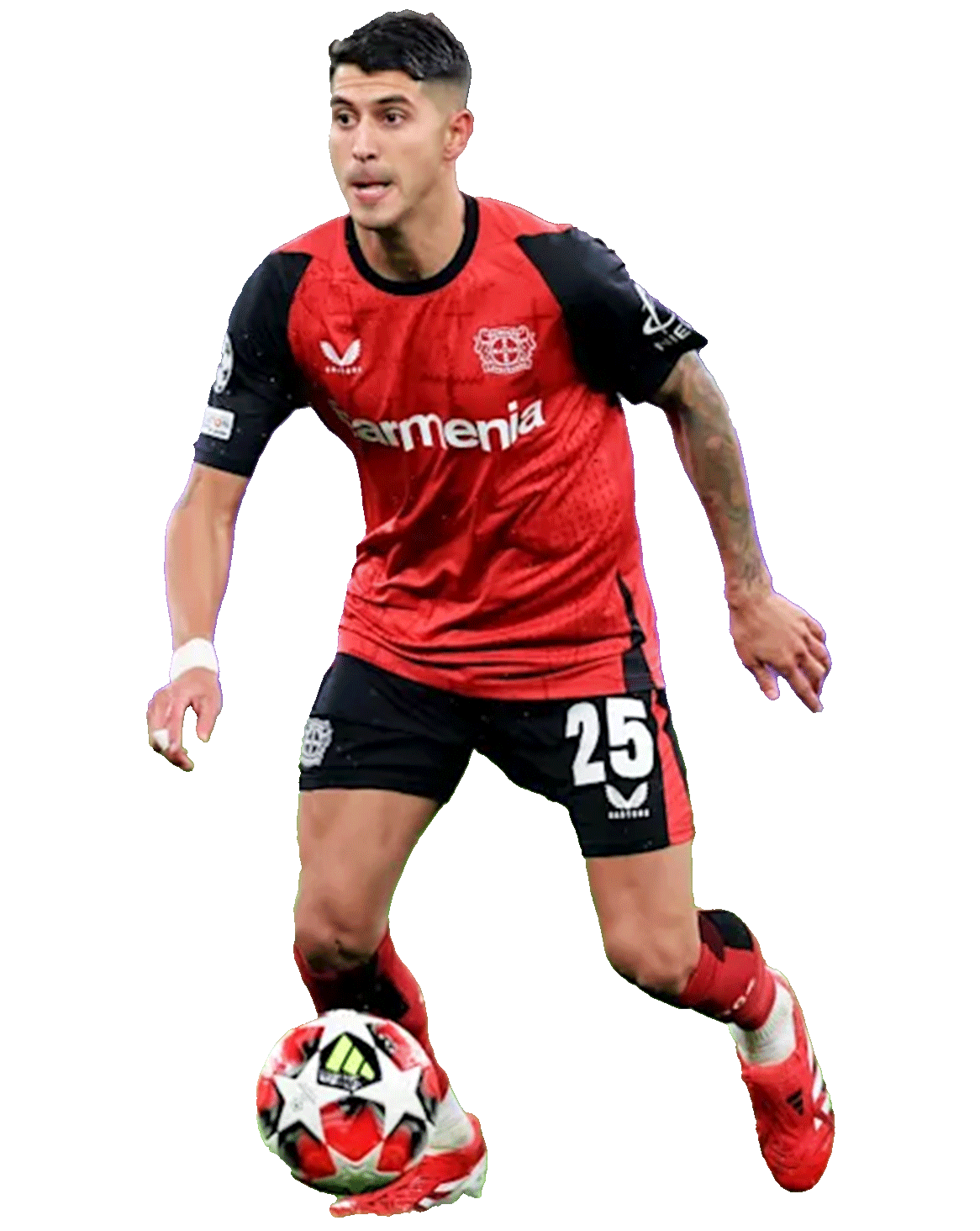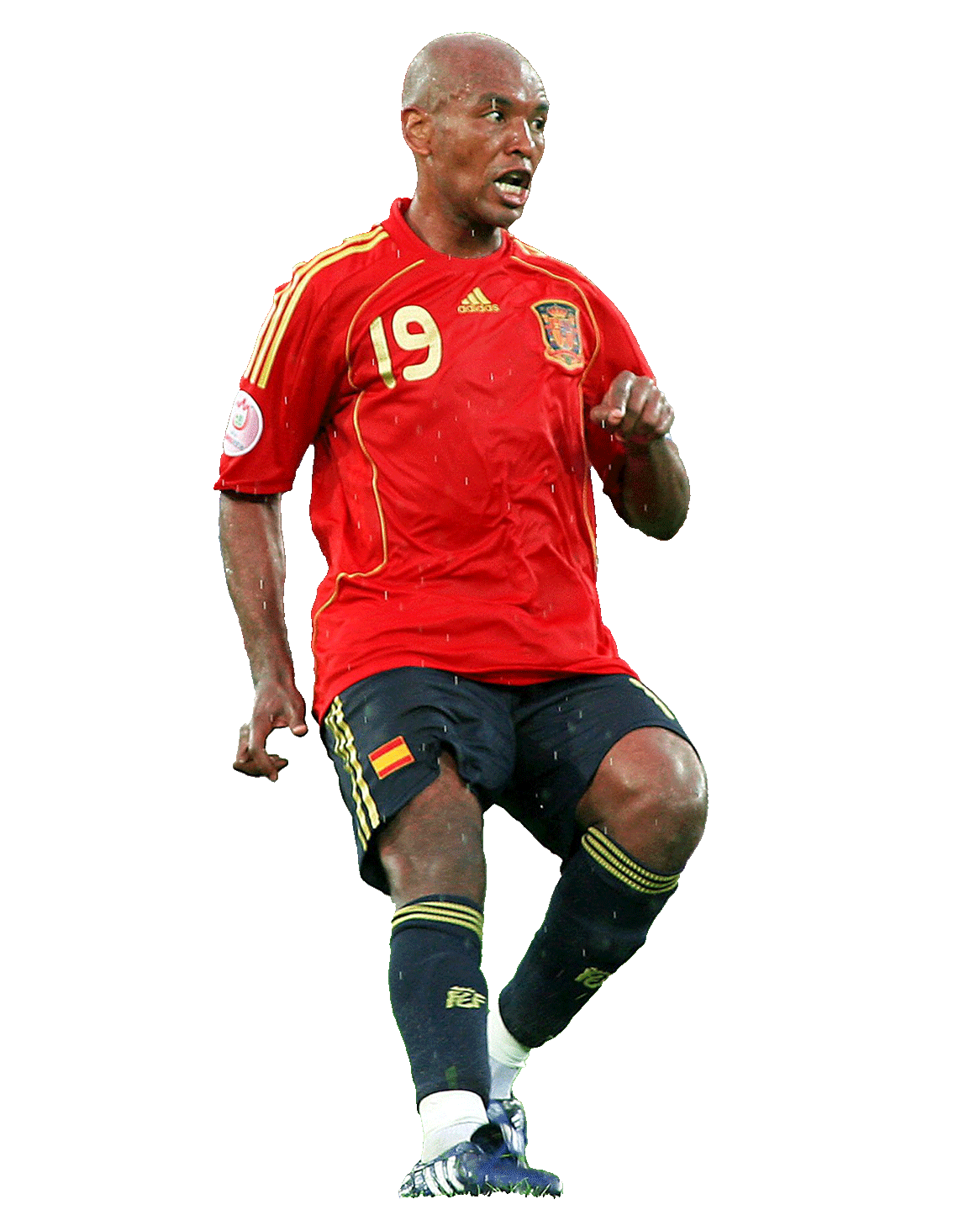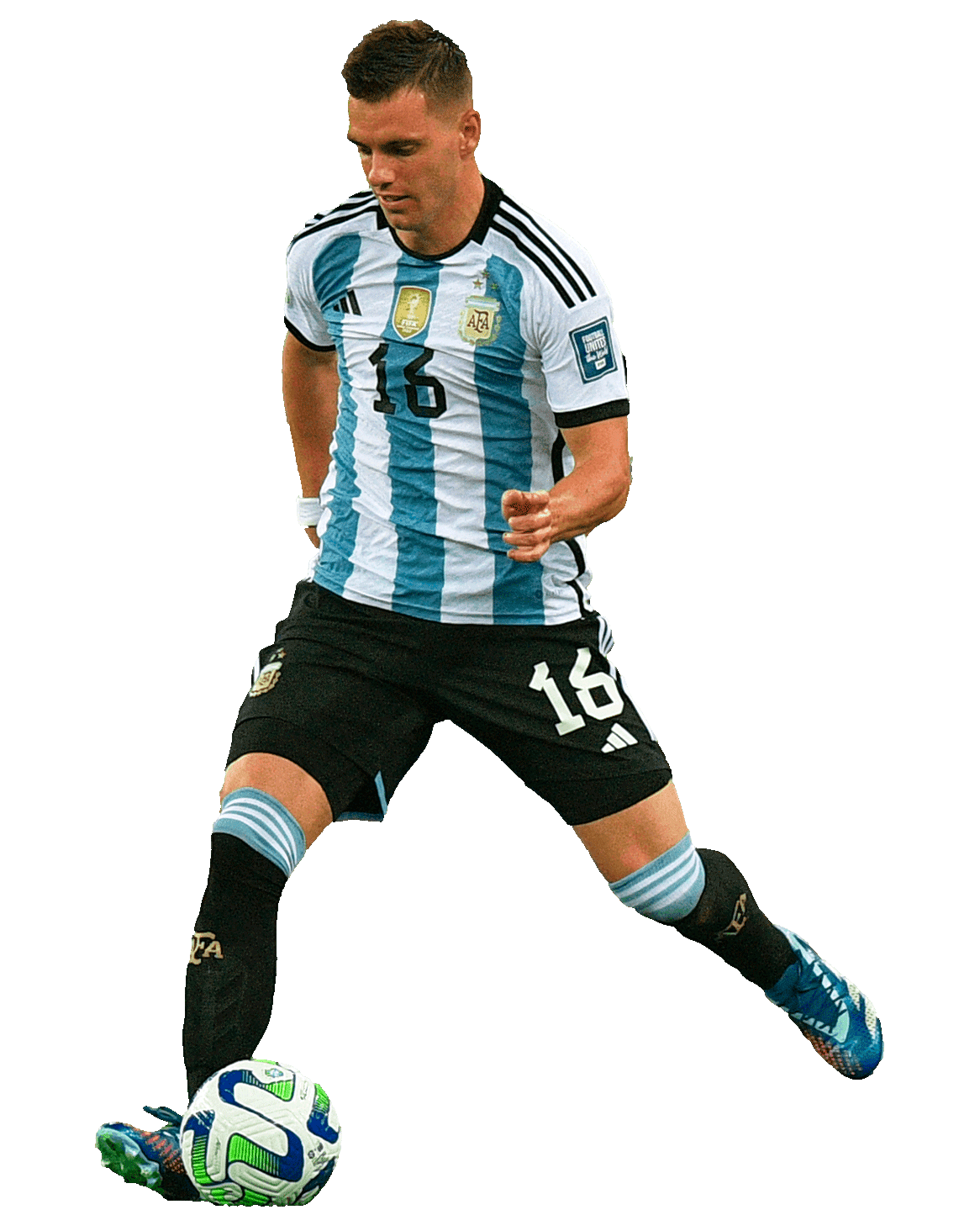


Roberto Carlos
~The Bullet Man
Apr 10' 1973

Brazil
The Exhilarating Story...
Born on April 10, 1973, in Garça, São Paulo, Brazil, Roberto Carlos had a humble start. He grew up in a family that struggled financially, with his parents working tirelessly to provide basic necessities. Despite the odds, Roberto Carlos nurtured his passion for football, embracing it as both an escape and a beacon of hope. His journey to success wasn’t smooth, but his resilience and determination, coupled with the support of key mentors, made him a global icon. Roberto Carlos’s parents, Oscar da Silva and Vera Lucia da Silva, worked tirelessly to sustain their household, but financial struggles often loomed over them. Life in São Paulo was challenging, and young Roberto quickly learned the value of hard work. His talent was apparent from a young age, and he began playing for local clubs, where his exceptional speed and power caught the attention of scouts. However, limited resources meant he had to make the most out of the little he had, often training with makeshift equipment. The path to professional football wasn’t easy for Roberto. He had to overcome the barriers of poverty, criticism for his unconventional style, and the lack of formal training. Many doubted his potential because of his unpolished techniques, but Roberto Carlos never let this criticism dissuade him. He played with raw passion, improving his skills through hours of practice and learning from the few resources he had available. One of Roberto Carlos's significant influences was Mario Jorge Lobo Zagallo, the Brazilian manager who spotted his potential early on. Zagallo saw a special quality in Roberto’s style and encouraged him to leverage his natural speed and explosive power to enhance his performance on the field. His support provided the young player with the confidence he needed to aim higher. Another mentor was Vanderlei Luxemburgo, who was instrumental in developing Roberto’s technical skills, helping him hone the famous powerful free-kick that would later define his career. These mentors, alongside his own resilience, guided Roberto Carlos as he navigated through the professional leagues, proving his doubters wrong with each game he played. Roberto Carlos’s big break came when he joined Internazionale in Italy, but his move to Real Madrid in 1996 marked the true turning point in his career. Playing alongside legends and under esteemed managers, he developed into one of the world’s best left-backs. His iconic free-kicks, especially the “banana kick” against France in 1997, became the stuff of legend, showcasing his unique combination of power and technique. Despite facing injuries and frequent criticism for his style, Roberto Carlos remained focused on his goals. His persistence paid off as he became a pivotal player in Real Madrid’s lineup, winning multiple UEFA Champions League titles and establishing himself as one of the most feared defenders on the field. Now retired, Roberto Carlos is committed to giving back to the sport that changed his life. He has ventured into coaching and frequently participates in charity matches, using his platform to inspire young athletes from underprivileged backgrounds. Recently, he’s been active in various football-related projects and mentorship roles, aiming to help young players fulfill their dreams as he once did. His work continues to inspire new generations, demonstrating that with determination and the right support, anything is possible.
“
You can have talent, but without hard work and discipline, you will never reach the top.

Career
Last updated: Oct 29' 2024
União São João
- Career: 1991-1993
- Total Appearances: 21
- Total Goals: 3

Atlético Mineiro
- Career: 1992-1993 (Loan)

Palmeiras
- Career: 1993-1995
- Total Appearances: 44
- Total Goals: 3

Inter Milan
- Career: 1995-1996
- Total Appearances: 30
- Total Goals: 5

Real Madrid
- Career: 1996-2007
- Total Appearances: 370
- Total Goals: 47

Fenerbahçe
- Career: 2007-2009
- Total Appearances: 65
- Total Goals: 6

Corinthians
- Career: 2010-2011
- Total Appearances: 35
- Total Goals: 1

Anzhi Makhachkala
- Career: 2011-2012
- Total Appearances: 25
- Total Goals: 4

Delhi Dynamos (renamed as Odisha FC)
- Career: 2015-2016
- Total Appearances: 3

Brazil Football
- Career: 1992-2006
- Total Appearances: 125
- Total Goals: 10

Sivasspor
- Career: 2013-2014 (Manager)
- Total Games: 59
- Wins: 23
- Losses: 27
- Win Rate: 38.9%

Akhisar Belediyespor
- Career: 2015 (Manager)
- Total Games: 20
- Wins: 5
- Losses: 8
- Win Rate: 25%

Delhi Dynamos (renamed as Odisha FC)
- Career: 2015 (Manager)
- Total Games: 16
- Wins: 7
- Losses: 5
- Win Rate: 43.75
Achievements
Palmeiras
- 2x Campeonato Brasileiro Série A
- 2x Campeonato Paulista
- 1x Torneio Rio–São Paulo
Real Madrid
- 4x La Liga
- 3x Supercopa de España
- 3x UEFA Champions League
- 1x UEFA Super Cup
- 2x Intercontinental Cup
Fenerbahçe
- 1x Turkish Super Cup
Brazil U23
- 1x CONMEBOL Men Pre-Olympic Tournament
- 1x Olympic Bronze Medal
Brazil
- 1x FIFA World Cup
- 1x FIFA World Cup Runner-up
- 2x Copa América
- 1x Copa América Runner-up
- 1x FIFA Confederations Cup
- 1x Umbro Cup
- 1x Lunar New Year Cup
Individual
- 3x Bola de Prata
- 1x FIFA World Player of the Year (Silver)
- 7x ESM Team of the Year
- 2x FIFA World Cup All-Star Team
- 1x Trofeo EFE
- 2x UEFA Club Defender of the Year
- 2x UEFA Team of the Year
- 1x Ballon d'Or Runner-up
- 1x Golden Foot
- 1x Sports Illustrated Team of the Decade
- 1x ESPN World Team of the Decade
- 1x Campeonato Brasileiro Série A Team of the Year
- 1x FIFA 100
- 1x Brazilian Football Museum Hall of Fame
- 1x Ballon d'Or Dream Team (Silver)
- 1x 11Leyendas Jornal AS
- 1x IFFHS All-time Men's B Dream Team
- 1x IFFHS South America Men's Team

Celebrating
Palacios


Football
Sep 04' 2025
Celebrating Grit & Growth Exequiel Palacios.
Exequiel Alejandro Palacios was born on October 5, 1998, in Famailla, in the province of Tucumán, Argentina. His parents, Mariela Rodríguez from the rural area of Sumampa in Santiago del Estero and Luis Palacios from Tucumán, raised him in humble beginnings. When he was just two months old, his family moved to General San Martín in Buenos Aires. That move planted the early seeds of his future in a city with stronger football culture. Growing up, football was both escape and aspiration. Young Exequiel faced countless challenges typical to many young athletes: limited resources, intense competition, and the need to stand out to secure opportunities. Yet his talent was noticeable and his dedication unwavering as he rose through the youth ranks of River Plate. At age 17, he made his league debut for River Plate on November 8, 2015, entering the game against Newell’s Old Boys. It was a moment of vindication for years of sacrifice and perseverance. That breakthrough began a period during which he became instrumental in River’s success. In 2018, Palacios was part of the River Plate squad that clinched the Copa Libertadores. He contributed across 11 matches including the epic final against Boca Juniors. That same year, he earned a place in the South American Team of the Year, milestones that reflected his determination and progression. In January 2020 he took a major step forward by joining German Bundesliga side Bayer Leverkusen on a long-term deal. It was a bold transition—leaving his homeland to embrace new challenges abroad. He helped his team win the 2023‑24 Bundesliga, Germany’s domestic cup, and Supercup, playing a solid role in their historic success. His national team journey faced a frightening moment in November 2020 when he fractured a bone in his spine during a World Cup qualifier against Paraguay. Doctors anticipated a three‑month recovery. For most athletes, such an injury could derail a career. Yet Exequiel’s mental strength, along with medical and support teams, saw him return to top form. Back in full health he was part of Argentina’s Copa América victory over Brazil in 2021 and later contributed to their 2022 World Cup triumph. In 2024, he was again part of Argentina’s victorious Confederations Cup–style title, continuing his national‑team legacy. Most recently in August 2025 he returned from a hamstring injury and was named on the bench for Bayer Leverkusen’s match against Werder Bremen. His resilience after yet another setback shows his relentless spirit and readiness to fight for opportunities. This journey shows how drive, support, and vision transform ambition into achievement. That is where 8lete steps in as a beacon for young athletes. 8lete’s platform connects emerging players with mentors, training resources, medical support, and success stories like Palacios’s. By providing structured guidance and encouragement at every stage, 8lete can help talented youth navigate trials and stay committed to their dreams. Exequiel Alejandro Palacios’s story from a small town boy to a Bundesliga champion and World Cup winner embodies grit, community, and growth. It reminds us that with the right tools, support, and mindset, young players can reach elite levels. Through 8lete, aspiring athletes gain access to the guidance and infrastructure that turn potential into accomplishment. Let Palacios’s path inspire the next generation to believe, work, and succeed.
READ MORE

Celebrating
Senna


Football
Sep 02' 2025
Celebrating Support & Perseverance Marcos Senna.
Born on 17 July 1976 in São Paulo, Brazil, Marcos Antônio Senna da Silva grew up playing football in poverty, his earliest games woven into the rough streets of his youth. His story begins not in lavish academies, but with a passion that drove him to dream bigger. Senna’s start was far from spectacular. He spent his early career in the lower tiers, featuring for Rio Branco, Corinthians, Juventude, and São Caetano. These formative years were a test of patience, determination, and unwavering belief. In 2002, a modest €600,000 move to Villarreal opened a new chapter. Though coming late to broader recognition, he embraced it, steadily becoming the heartbeat of a rising club. Injuries could have derailed him. A serious knee injury in 2003, one of four he endured, threatened to halt his ascent. Yet with faith and resolve, he rebounded. Drawing strength from his Christian values, he leaned on inner peace during his recovery. What set Senna apart wasn’t flair but intelligence. His playing style was simple, direct, and effective. He earned trust through disciplined positioning, precise passing, and a calming presence in midfield. His humility shone through in an understated grace that defined his legacy. Naturalised in 2006, Senna joined the Spain national team. He played a pivotal role in their Euro 2008 victory scoring in the penalty shootout and anchoring midfield with composed authority. This triumph transformed both his career and legacy. Back at Villarreal, he delivered memorable moments like his “best goal of my life” scored from inside the centre circle against Real Betis and captained the side through highs and lows, including relegation and resurgence. Later, he returned as the club’s director of international relations, continuing to inspire. Behind Senna’s resilience were companions, coaches, and inner convictions - Luis Aragonés who invited him to Spain, teammates who trusted him, mentors in faith. These networks buoyed him through every stumble and success. The lessons from Senna’s path resonate: Embrace humility and grind Lean on faith or values during adversity Let mentors and community guide you Play with clarity, not flash 8lete embodies these principles providing young athletes with mentorship, tailored guidance, and the mental resilience to thrive, just as Senna did. At 8lete, we believe in building journeys, not just talents. Like Senna overcoming his early anonymity, injuries, and late bloom into international acclaim, young players today need not be defined by where they begin, but by how they grow with support, perseverance, and smart training.
READ MORE

Celebrating
Gio


Football
Sep 01' 2025
Celebrating Courage & Perseverance Giovani Lo Celso.
Giovani Lo Celso was born on April 9, 1996, in the vibrant football city of Rosario, Argentina - a place that has produced legends and instilled a deep footballing passion in him from childhood. He is the third child of Sandra and Juan Lo Celso, growing up with two older sisters and a younger brother, Francesco, who also went on to become a professional footballer. From an early age, Giovani was immersed in football culture. Rosario’s streets and local pitches shaped his ambition. At just 14, he joined Rosario Central’s youth academy, dedicating himself to nurturing raw talent into refined skill. By age 19, Giovani made his senior debut for Rosario Central. His breakthrough season featured a first senior goal, memorable match moments, and steadily rising recognition across Argentina’s top league. In 2016 he signed with Paris Saint-Germain, a dream move that positioned him among world‑class stars. While the transition was thrilling, adapting to life abroad required resilience amid limited opportunities. Seeking more playtime, he moved on loan to Real Betis in 2018. There, he rediscovered his form, showcasing leadership and flair and convincing the club to sign him permanently. A loan to Tottenham Hotspur in 2019 became permanent. Though marked by flashes of brilliance - including Champions League moments and Premier League goals - his time in London was disrupted by injuries and a feeling of disconnection from the team’s core. In August 2024, Giovani returned to Real Betis. Instantly impactful, he scored in successive matches and reclaimed his confidence. Under coach Manuel Pellegrini, he flourished in a nurturing, family‑like environment. By August 2025 he had emerged as a leader on the field - motivating teammates, scoring vital goals, and embodying the spirit of Betis as the team began a new chapter of ambition and unity. Just recently, Giovani delivered a precise corner that led to a headed goal in a 1‑1 draw against Celta Vigo, adding to his tally of goal involvements in the early season. Giovani’s journey exemplifies how the right support system transforms potential into greatness. 8lete mirrors this by offering personalized training plans, mentorship, mental resilience coaching, and holistic development helping aspiring athletes navigate setbacks, harness their strengths, and rewrite their story, much like Giovani did. Giovani Lo Celso’s path from Rosario’s local fields to European finals, marked by personal struggle, reinvention, and leadership resonates with any young player chasing dreams. It shows that perseverance, guided support, and the courage to embrace new beginnings can ignite a fulfilling career.

